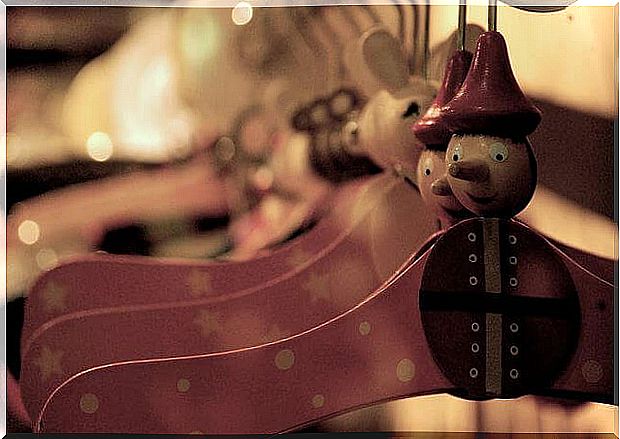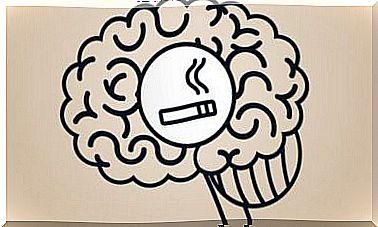Three Arguments To Stop Lying

” Lying is dead simple. I’ve been doing it for over 50 years, and once you know how it works, it’s really a piece of cake. Signed: James Randi, one of history’s greatest magicians. However, some nuance must be added here: although anyone can indeed tell a lie, its credibility remains a real art. Especially because our minds tend to feel uncomfortable when we unabashedly betray the precious virtue of honesty.
At the same time, if we ourselves are the victim, that is: someone lies to us and we catch them, then we suddenly feel extra small and vulnerable. We are saddled with an adamant distrust of the world, causing us to – involuntarily – erect an inner shield that isolates us emotionally. Anyone who seriously doubts someone else’s integrity in advance also misses all kinds of opportunities to meet honest people.
A study by the University of Los Angeles (2004) found that even the most righteous individuals routinely lie several times during their day-to-day activities. In addition, we often use subtle, implicit, or silent lies – almost without exception – expressly not saying something , omitting it, or supposedly accidentally forgetting to mention it. Together with the well-known ‘white lies’, this is socially accepted and forgiven.

Consistently attaching consequences to lying reduces its frequency
When it comes to personal relationships, the experts agree that the key lies in prevention. But what if we are already accomplished, unscrupulous, or opportunistic joggers, and the precautionary stage is long behind us? The only proven method of making a dogged and incorrigible liar tell the truth is to promise him or her serious repercussions, so that it becomes less and less tempting to continue cheating systematically.
In order to successfully carry out this punitive approach at all, one must first establish indisputably who is lying, or has lied. Fortunately, numerous social research studies today offer detailed diagnostic models to determine this accurately, based on practically observable indicators. Those who learn to recognize these characteristics will no longer allow themselves to be fooled naively.
One salient feature that deserves to be highlighted is that people who willfully conceal things, and twist the truth, are defensive at the slightest. Hence they frantically avoid cooperation, and they give sophisticated explanations in order to nevertheless maintain the appearance of transparency and candor. Let’s take a closer look at this villainous tactic.
Eye contact
When we deliberately withhold relevant information, we block or curtail ourselves—both inside and out—and our gestures begin to seem more and more forced to others. Those who know us a little, even if they can’t exactly put their finger on the sore spot, intuitively sense that something isn’t right. Their suspicions can be aroused by several factors: from the tone of our voice, the rhythm in which we speak, how often we blink, to a slightly contorted facial expression. And if they notice something like that anyway, they can of course draw more or less plausible conclusions from it – for themselves.
Skilled and rarely caught in the act, liars are masters of controlling and manipulating their body language. If not, they turn to indirect means of communication (telephone, e-mail, notes, messages…) to minimize the chance of detection and suspicion.
Amateur or insecure liars often overemphasize their ‘alleged innocence’, with almost spastic mannerisms and facial expressions, and also literally take a defensive position, by not standing or sitting directly in front of you, not looking directly at you and so on. . In their minds they are much too preoccupied with the potential ‘being caught’, and they therefore wriggle in all sorts of anticipatory turns to prevent this at all costs.

By using vague expressions and standard formulations, we remove ourselves from the facts, and from the undisguised depravity of the lying itself. By calculatingly ignoring things, and slyly disguising your true intentions in clichés, it remains complicated for the victim to conscientiously claim that he or she is being shamelessly cheated. Furthermore, you reduce – two birds with one stone – unexpected (future) contradictions in your own story, and it is less of a test for your memory to remember everything ‘correctly’.
Yet at the same time we also have to admit that everyone – even the most honest Jan Moraal – sometimes makes mistakes, or does not remember things 100 percent truthfully. The crucial difference in this matter is the intent, and the explicit willingness to provide further text and explanation as necessary, or to revise or retract our private version. A person who knowingly lies, on the other hand, will do anything to escape such bold legitimization and explanation. He cuts and pastes his own thoughts live , and if something suddenly pops out that doesn’t fit, he always quickly comes up with an ad hoc excuse.
The reflection of our everyday lies
Make decisions from the heart or according to the mind, speak the truth or rather twist reality to your own advantage? Read more.









